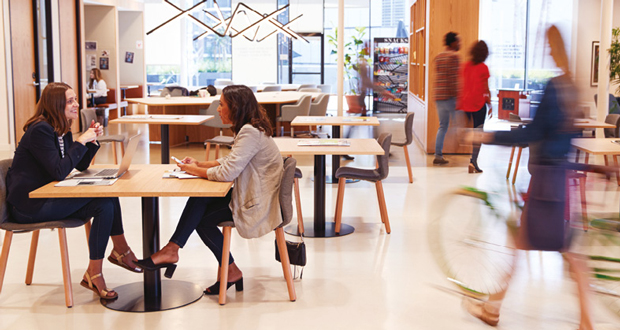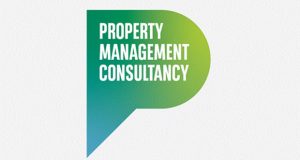As hybrid work becomes more permanent, employee perception of the office is shifting, with 72 per cent of the global workforce now viewing return to office (RTO) policies positively. However, according to new research from JLL, this comes with a growing expectation for improved workplace experience, flexibility and employee wellbeing.
JLL’s 2025 Workforce Preference Barometer gathers insights from 8,700 office workers across 31 countries, employed at organisations with more than 1,000 staff members and representing sectors from finance to technology, manufacturing and public services. The research outlines the workforce’s biggest challenges and priorities and how corporate real estate and business leaders can work together to design and curate office spaces that meet employee needs well into the future.
Dr. Paul Morgan, Global COO, Work Dynamics, JLL said: “Three years into the hybrid work era, there is an opportunity for business leaders to rethink the role of the office and how it fits into employees’ lives. The answer lies in creating adaptive workplaces that support diverse needs—from flexible arrangements for caregivers to connection-rich environments where emerging talent can build relationships and accelerate their growth.”
The mixed reception to in-office mandates is dependent on office environment, offerings, demographics and personal circumstances
Nearly two-thirds (66 per cent) of office workers report that their company has clear expectations for the number of days required to work in the office and acceptance of these policies correlates directly to the quality of the experience. In fact, 84 per cent of respondents who are happy about their workplace also feel positive about office attendance policies, while 48 per cent of those who are not happy with their workplace also feel negatively toward these mandates.
Employees who see office requirements in a positive light tend to work in environments where business needs and employee wellbeing are equally prioritised – they benefit from quality workplaces, empowering cultures and strong learning and development opportunities. They value clear expectations and shared routines – 50 per cent of these individuals say office presence supports better teamwork and nearly the same percentage (43 per cent) prefer to work from the office. Overall, nearly three-quarters of employees who see office requirements positively say their company is a great place to work.
In contrast, negative perceptions of office requirements have less to do with the guidelines themselves and more with the lack of in-office support and offerings, underscoring the need for quality office spaces and personalised approaches to hybrid work arrangements. Negative perceptions of office requirements are largely driven by employees’ personal concerns such as quality of life (55 per cent), feeling stuck (42 per cent) or let down (41 per cent).
Different regions and demographics also present various levels of attendance policy acceptance as employees in the Middle East (87 per cent), North America (74 per cent), Latin America (72 per cent) and APAC (71 per cent) report higher approval rates than their European counterparts (64 per cent).
However, viewing the policy positively does not always mean complying with it and North American employees, especially in the U.S., tend to comply less than their counterparts in the other regions. The research highlights 78 per cent of compliance in North America and 74 per cent in the U.S., while the global average is at 81 per cent and Europe at 85 per cent. Beyond the culture, individual profiles also play a role. Younger employees (81 per cent), caregivers and managers (79 per cent each, respectively) are more likely to respond positively to RTO mandates as they benefit from increased visibility, support and professional development in the office space.
Despite the growing acceptance of office mandates, more than one-third of respondents (38 per cent) still report that their office requires significant improvement.
Regardless of the policy, JLL finds that compliance to mandates sits at 82 per cent for those with full-time RTO mandates and 95 per cent for employees required one to two days in the office. Younger employees, particularly those ages 30-34, make up the majority of non-compliers, and often have caregiving responsibilities in their personal lives. For this population, individual constraints outweigh office perks in driving office attendance. Generally, to close the compliance gap, business leaders should rethink office spaces to provide unique, personalised experiences through strategic fit-outs, holistic wellbeing programs and amenities such as expanded access to nutritious food for younger workers.
Promoting work-life balance and empowerment as a cornerstone of employee retention
More than half of respondents cite salary as a key driver in looking to change roles. However, work-life balance (65 per cent) is now a leading priority across age groups for retention – an increase from 59 per cent in 2022. Younger workers are particularly looking beyond compensation for fulfillment through rewards, recognition, wellbeing and community.
For example, over half of global workers (57 per cent) report flexible working hours would improve their quality of life, however, only about half currently have access to this model. The gap also persists among men and women, with 52 per cent of men reporting access to flexible hours versus 47 per cent of women. Caregivers specifically seek additional support, including increased flexibility (43 per cent), short notice paid time off (42 per cent) and remote training options (33 per cent), reinforcing the urgency for employers to revisit people strategies and rethink the office space to support flexible work patterns that tend to business needs and personal life.
Peter Miscovich, Executive Managing Director, Global Future of Work Leader, JLL commented: “In a more complex and distributed talent market, the office remains a key tool to both engage and attract top talent, especially as it relates to employee expectations around how one’s work and life can best integrate together and complement one another. Employers that smartly invest in workplace design and fit outs that promote wellbeing can create high-performance work environments that will support the various life stages of employees – from new members of the workforce to more tenured employees, further promoting long-term talent attraction, retention and future business growth.”
Supporting wellbeing to secure long-term performance
Positive findings of the report reveal an eight-percentage point decrease among employees that feel overwhelmed or exhausted since 2022 (40 per cent in 2025 vs. 48 per cent in 2022). This number spikes to 46 per cent, however, among caregivers, a group which represents nearly half of the global workforce. Caregivers have kept high levels of flexibility, which is vital for them but puts them at risk of disconnecting from work. This makes it increasingly important to curate workspaces that foster wellbeing, growth and meet employee needs. This point is further underscored when considering retention – while salary (46 per cent) and flexibility (37 per cent) remain fundamental to retain employees seeking new roles, one third of employees report they would leave their current employer in search of better career development and reskilling opportunities. The same proportion is re-evaluating the role work plays in their lives.
Of those employees considering leaving their work environment in the coming months (24 per cent), trends emerge among managers, representing 77 per cent of this group and caregivers (61 per cent) – often overlapping, mid-career individuals with significant work and personal responsibilities. Other at-risk groups include employees who have been at their company for one to five years and workers aged 18-34.
Retention is now driven by how employers respond to the full span of employees’ lives, creating an opportunity for office space to play a more important and intentional role in building a sense of culture, wellbeing and belonging.
Facilities & Estates Management Live will open its doors on 7th and 8th October at the Business Design Centre in London.
Brought to you by the people behind the Facilities Management Journal (FMJ), visitors can tour the exhibition stands featuring some of the leading FM service providers & product suppliers as well as enjoy a lively seminar programme.
There are two concurrent speaking schedules at the show: A series of KEYNOTE talks from thought leaders in FM and the built environment and a series of INNOVATION presentations from key suppliers in the market.
The programmes have been compiled by FMJ in consultation with members of the FMJ editorial steering group who represent client side FMs from a range of sectors, including public sector, not for profit, professional services and healthcare.
Securing your free pass and fast entry to the show couldn’t be easier, simply click here.





